Blind chess in India (1)
In the past few days, we had actively reported the National-B for the Blind held in Manipal. Ever since its inception, the AICFB has never charged entry fees from any of the participants in any tournament organized by them. Nor does the government support blind chess in India. How does the system work? In the first part, we bring you a report on the status of blind chess in India detailing the problems our visually impaired friends face.
Blind chess in India (1)
"Forget about funds, the government of India doesn't give any recognition to visually impaired chess players, although we have won many laurels for the country," laments Charudatta Jadhav, the founder and General Secretary of the All India Chess Federation for the Blind (AICFB). Essentially, this means that unlike other sportspersons, the blind chessplayers do not get any benefits in the form of jobs or perquisites. Of course, financial support from the Government is unheard of in these chess hinterlands.
How long has he been knocking the government's door? "I had been running behind them since 1998. Now, I've stopped -- I don't want to waste my time and efforts. We've found different means to survive."
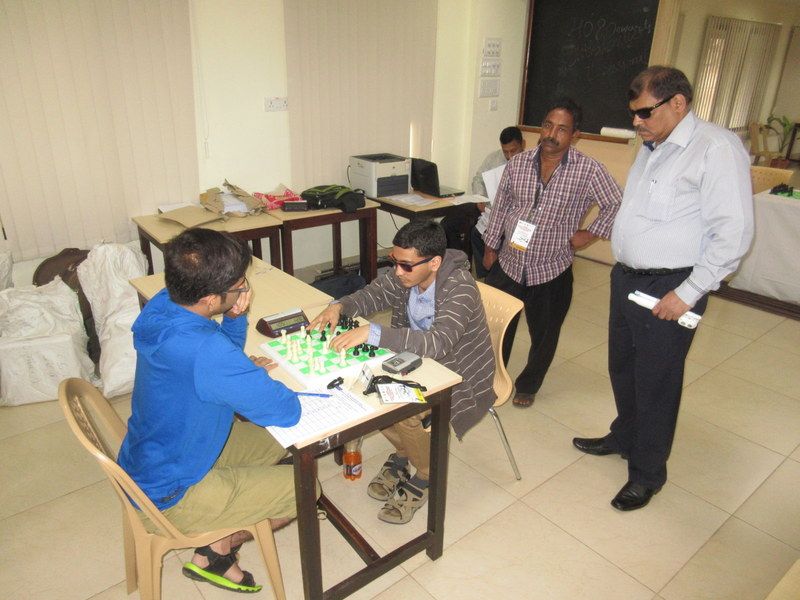
According to the Persons with Disabilities Act, 1995, blindness refers to a situation where a person suffers from any of the following conditions, namely: Total absence of sight; or Visual acuity not exceeding 6/60 or 20/200 (Snellen) in the better eye even with correction lenses; or Limitation of the field of vision subtending an angle of 20 degrees or worse.
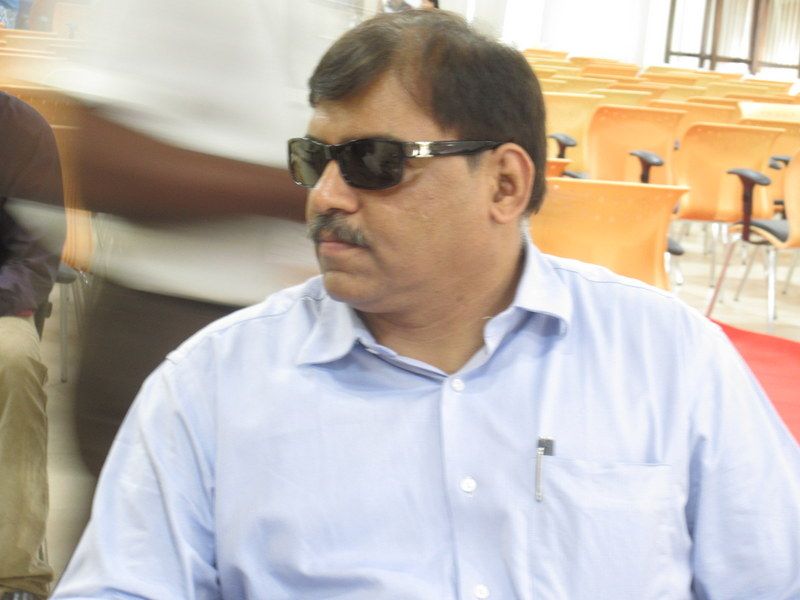
Charudatta Jadhav is the Head of Innovation Strategy at TCS and the General Secretary of the AICFB. He has represented India in six World Chess Championships for the Blind and two Olympiads, developed the world's only talking software for chess, and has scaled a 17,220 feet peak in the Himalayas among many other things.
He has managed to achieve all his success despite losing his ability to see at the age of thirteen. His father was a mill-worker from Kurla in Mumbai and lost his job soon after his son lost his sight. Amidst all the darkness, chess was the ray of light that kept Charu moving forward. To rise from such a background to head an entire department in a corporate, to lead the complete set-up of blind chess in India, and do so successfully for almost two decades -- truly an astounding story.
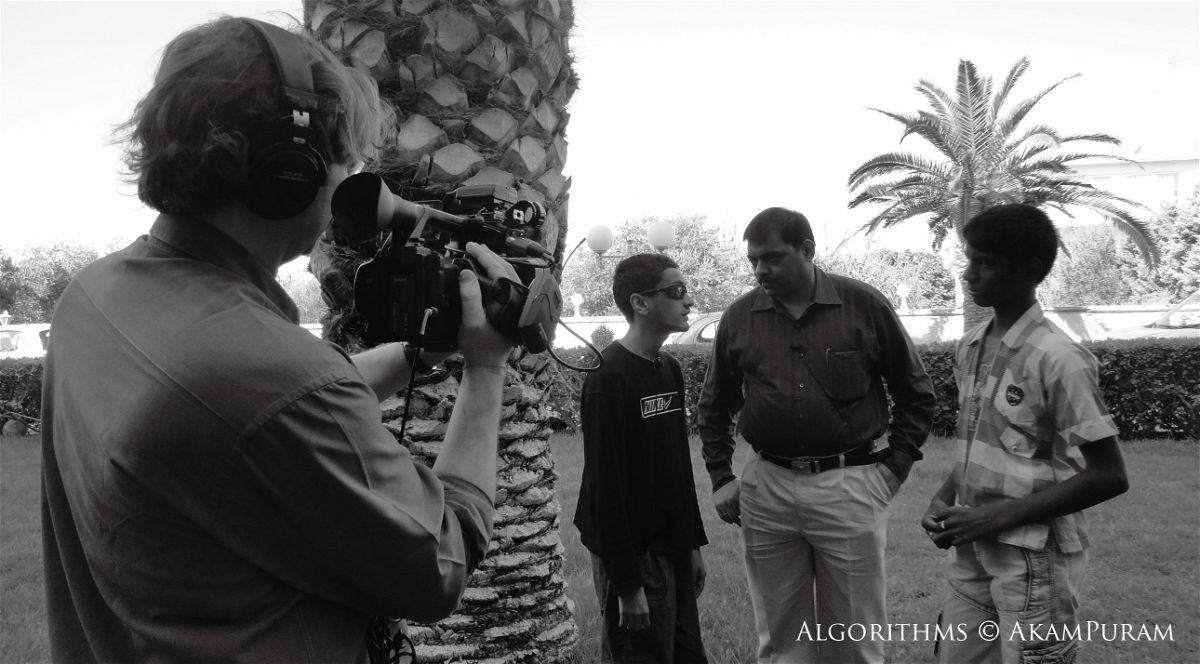
The development of blind chess in India is no less amazing a story. Until the year 2008, there were only seven rated blind chess players in India, including Charu himself, who had a peak rating of 2053. These players had gained their ratings in the normal tournaments with sighted players. The AICFB created a five-year plan in 2008 with two primary milestones -- to produce at least 40 rated players by 2012 and also finish in the top-five of the Blind Olympiad 2012.
Charudatta Jadhav's AICFB took concrete steps towards their milestones. They identified a pool of talented players in each zone and provided them coaching and covered their tournament expenditures because these were their primary hurdles.
As it so happened, coincidentally, FIDE lowered the minimum rating requirements below 2000 and by the end of 2009, India already had 30 rated players! Once India had a sufficiently big pool of FIDE rated blind players, AICFB began conducting their own tournaments for the visually impaired where they do not charge any entry fees and provide lodging and boarding to all players. Today, there are 134 visually impaired rated players in India.
At India's first appearance in the Olympiad in the year 2000, India stood 28th. In 2004, we saw a marginal rise to the 21st position. In 2008, we took another step forward to finish 16th; however, this time until the seventh round, India were hovering around the seventh-eighth positions! Only due to losses in the final two rounds were we pushed behind.
In 2008, the organization under Charu's leadership upped the ante. They knew the probable pool of ten-fifteen players, out of which the team of four would come, who would be playing the Olympiads for India. They started providing one-to-one as well as group coaching to this particular pool. Not surprisingly, in the 2012 Olympiad, India finished fifth.
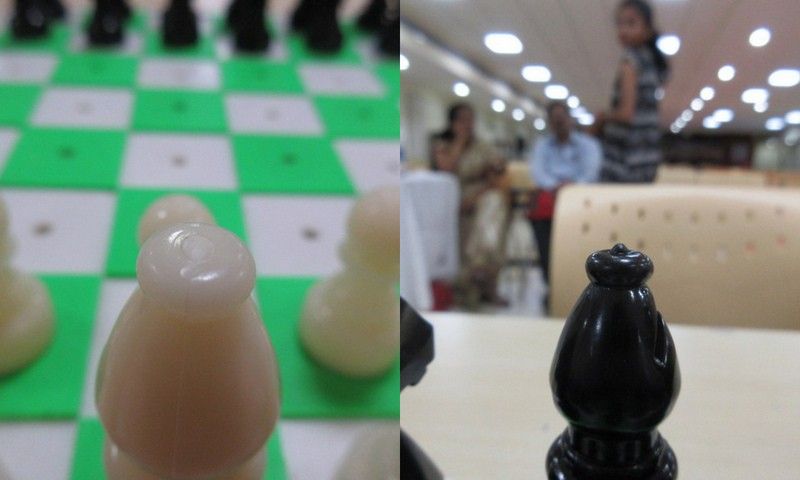
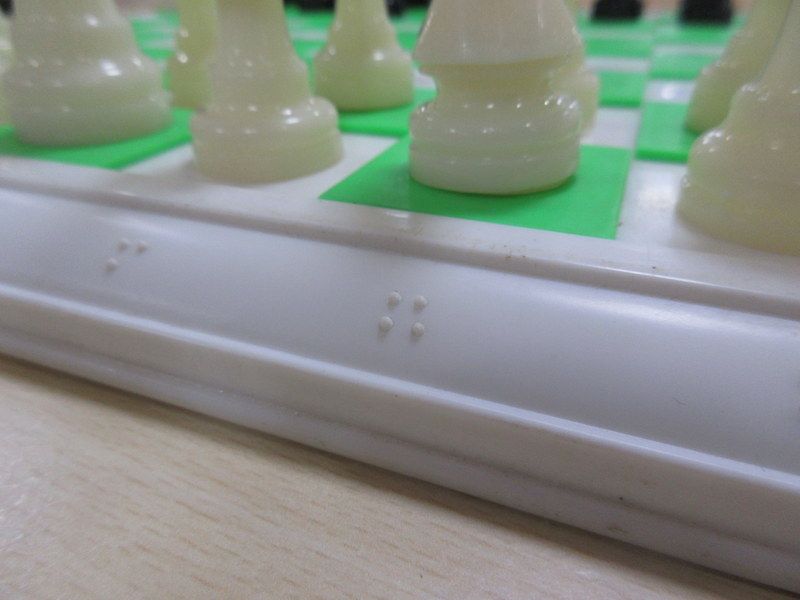
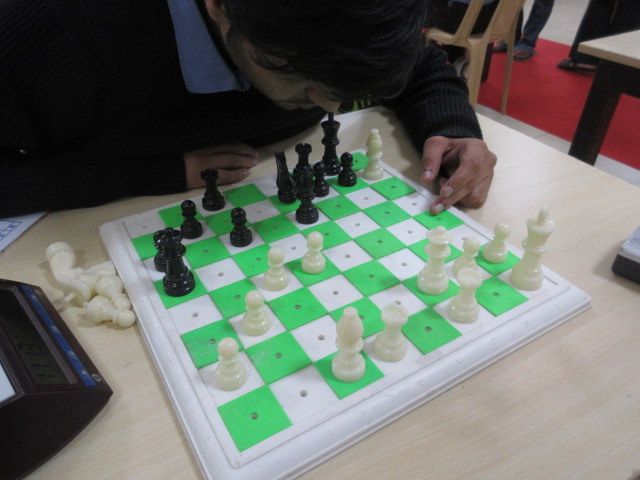
Ever since its inception, the AICFB has never charged entry fees from any of the participants in any tournament organized by them. Nor does the government support the blind chess in India. How does the system work?
There are two methods: 1. AICFB gets corporate sponsorships for the tournament or 2. AICFB does a tie-up with a benevolent institution and conducts the tournaments. In the 2015 edition of the National-B for the Blind, Manipal University came forward for AICFB's cause and hosted an excellent tournament.
However, the lack of funds is of secondary concern to Charudatta Jadhav. "I have mentioned this time and again: money is not our primary concern. Our players want dignity because we too have won laurels for our country! A sighted sportsperson wins a medal and receives a cash prize from the Government. Don't give my players even that if you cannot afford to! At least, give them the status of a sportsperson. When our players apply for jobs, nobody is considered in the sports quota. So many years and the government is still not empathetic towards our cause. India, and this is true, is the only country to have not recognised blind chess as a proper sport."
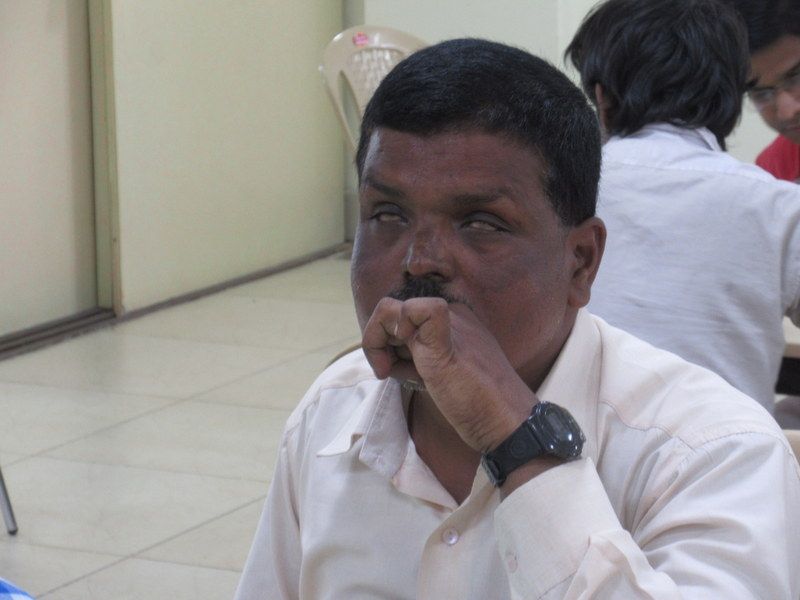
What are the new challenges ahead in terms of chess strength? Today, many talented players leave chess because they know that this is not going to help them in their careers. The first problem is obviously the lack of recognition. The second problem is the lack of awareness. In the normal chess world, if a student wants to learn chess, he/she just walks to a coach and starts learning the game. There is an informal structure in place which allows new players to take up the game easily. The same is not the case in blind chess, as there is no awareness that the visually impaired can actually compete on par with the sighted in a sport!
We have improved dramatically in terms of quantity, but what needs to be done now is to improve the quality of players. Countries like Russia have many visually impaired titled players while the strongest player in India right now is yet to cross the 2100 mark.
In the second part, we will discuss the possible solutions to the problems blind chess in India is facing, with details of concrete steps we can take to help our visually challenged friends.
ChessBase India will be coming forward with quality reports of the blind chess tournaments in its efforts to create awareness about blind chess in India. Additionally, steps will be taken to make the ChessBase software accessible to the visually challenged players so that our friends can use them without difficulties.

